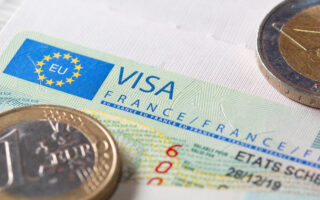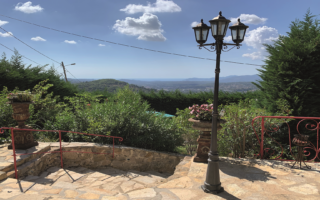On the safe side
Catherine Cooper takes an in-depth look at the insurance you will need when you make the leap to live in France
Whether you are planning to make France your home or simply have a holiday home there, it is vital to ensure that you are properly insured.
Home insuranceIf you are insuring a holiday home, make sure your insurer is clear that it is not your main residence. Some policies become invalid if the property is left for long periods of time. Take out an insurance product especially for holiday homes. Check that you are fully covered for water damage due to burst pipes which is a common claim for holiday homes. If you are renting out your home, you must make it clear whether you are offering long-term rentals or holiday lets and check that you are insured appropriately.Unlike in the UK, in France it is a legal requirement that you have buildings insurance on your property whether you rent or own it. You will need to have this in place before you buy a property or take on a lease. This will cover you against any damage to the property, such as fire or water damage, and any damage your property might cause to another (for example, if your washing machine leaks into the flat below.)Contents insurance is not a legal requirement but it is wise to take it out to cover accidental damage to your belongings, fire or theft. In practice, many home insurance policies in France are multi-risk habitation contracts which include buildings, contents and public liability insurance.French contents insurance differs from many UK contents insurance policies in that it does not usually cover your personal items (eg laptops, mobile phones or jewellery) while they are away from your home. It is sometimes possible to arrange this via a French insurance company but it can be expensive and it could mean listing every item you want covered outside the home one by one. For this type of cover, it can be easier to approach a UK-based company which specialises in properties overseas. Some of these are listed at the end of this article. French policies don’t typically include cover for accidental damage. However, if someone comes to your house and breaks something for example, you should be able to claim under his public liability insurance.Check the small print of your policy to see what type of security measures you are expected to have in place – many policies require all windows below a certain height to be protected with shutters or grilles. If you are burgled and these are found not to be in place, it could invalidate your policy. Some policies will also expect you to have receipts for any valuable items. Keep these in a safe place – ideally with photos of the items themselves, or walk round your house with a video camera filming your valuable items and keep the evidence safe. When your insurance is due to expire, if you have taken it out with a French company it will roll over automatically unless you give your insurer an average of two months’ written notice, sent by recorded delivery (the amount of time varies from company to company). You also have 20 days’ grace from the date your renewal letter was posted to change the insurance company. In case of a dispute of cancellation, it is important to keep not only the renewal letter but also the envelope to prove when the letter was posted. It is not usually possible to cancel a policy part way through the year unless there are exceptional circumstances (such as selling the house.)
Car insuranceThe main difference between car insurance in France and the UK is that in France, you insure the car rather than the driver – once your car is insured, anyone who has your permission can drive it. Another difference is that you must always have evidence of insurance on the car. When you receive your insurance documents they will include a small tear-off slip (certificat d’assurance), part of which you affix to the windscreen as proof of insurance; the other part should be signed and kept in your glove compartment with your carte grise. Do not leave your full insurance papers in the glove compartment. Your insurer will also send you another form to keep in your car – un constat amiable d’accident – to fill in if you have an accident. It has spaces for written and sketched details of the accident as well as insurance details for both parties. The carbon-copied form must be signed by both people involved in the accident and then each send it off to their insurers to establish fault.If you want to make a claim, the insurance company will usually refer you to their preferred garage and you would take your car there. You do usually have the option of using a different garage but in this case an expert will need to come and assess the damage which will then be submitted to the insurance company for approval, which usually makes the process lengthier.Just as in the UK, you can choose third party insurance (au tiers) or comprehensive (tous risques) and if you make a claim you will usually have to pay an excess (although you can usually choose to pay more for your policy and have no excess). A no-claims bonus system also exists. Some insurers will allow you to import’ a UK no-claims bonus and others won’t – it is worth checking when you choose your insurance company. If the company will recognise a UK no-claims bonus you will need proof of yours from your insurer in the UK. Make sure they specify the number of years’ no-claims you have rather than just stating full no-claims bonus’ – in France it takes 13 years to attain a full no-claims bonus as opposed to just five in the UK.
HealthOnce you are affiliated to the French health system, a proportion of the cost of any medical appointments, procedures or prescriptions you pay for will be reimbursed by the French Government. The amount reimbursed can vary from 35% to 100% depending on what it is. Many people decide to take out top-up insurance to cover the shortfall while others take a gamble and pay as they go – it is a personal decision. There is a huge range of companies offering health insurance (mutuelle) including English-speaking ones on the market. Read the small print before choosing which company to go with – the amounts they pay out, particularly for items such as glasses or dentistry, can vary quite widely. You will not need to have a medical to take out a mutuelle and will not even be asked for your medical history. Insurance cannot be refused on medical grounds. However, the cost of your insurance premiums will increase as you get older. If you are not eligible to join the French health system, you can take out private medical insurance to cover your medical costs. This is much more expensive than a mutuelle ’top up’ policy and you will be required to answer questions about your medical history.
Civil liabilityFrench law states that every person must have a civil liability policy. This protects you if you damage another person or their property. It is generally included with house insurance but it is important to check. If you have taken out home insurance with a UK company, you are likely to find it is not included but it can easily be bought cheaply as a standalone policy from any French insurer. You will probably need proof of your children’s public liability policy for them to attend a holiday club (centre de loisirs) or similar.
School insuranceYour child’s school will ask for an attestation d’assurance when you sign them up for lessons. It protects your child should they damage the school or hurt another child. It also covers them for after-school activities and while they are on their way to and from school, on school trips and taking part in school sports. It only costs a few euros per year and if your child attends a private school, you may find it is included in their fees. Many home insurance policies include assurance scolaire – check before you buy a separate one.
Life insuranceIf you are coming to France from the UK and already have life insurance, you may find that your policy will still be valid once you are abroad, although it is vital to check. Life assurance as we know it – ie which will pay a lump sum to your family if you die – is called assurance de d�c�s in France. Assurance de vie is not life insurance but a long-term savings programme. If you are employed in France you may be signed up for life insurance via your employer.
Travel insuranceIf you do not live in France but visit regularly, the European Health Insurance Card (EHIC) card (apply at www.ehic.co.uk) will give you the same rights as a French resident while you are in France (ie up to 70% of the cost). However, you should also take out travel insurance to cover any shortfall – plus the EHIC will not help if you miss flights, lose baggage or have to pay for extra accommodation because you are ill and unable to travel. If you are resident in France and planning to go on holiday to another European country, apply for a carte europ�ene d’assurance maladie, which works in the same way as an EHIC in the UK and gives you the same rights as a resident of whichever country you are travelling to. Your social security provider (CPAM, RSI or whichever is appropriate) will send it to you on request. Each member of the family should have one, including children. It is usually wise to take out travel insurance in addition for the reasons mentioned above.
Legal insuranceLegal insurance will cover your legal costs should you need them – some companies, such as Cr�dit Agricole Britline, also give you access to an English-speaking French legal expert. Legal insurance can help with mundane, day-to-day matters such as a landlord who refuses to fix a boiler, goods which have been damaged in transit and which you are still expected to pay for, or dealing with noisy neighbours.
Other insuranceJust as in the UK, you can insure almost anything! Other reasonably common insurances include personal injury insurance and insurance against loss of independence. The types of insurance you choose to take out will depend greatly on your personal circumstances. If in doubt, talk to an insurance adviser (there are various English language options available – some are listed below) but remember that it is in their interest to persuade you that you need their product! Think carefully about your needs, and then shop around for the policy which is right for you. You can compare quotes for all types of insurance at www.assurland.com or www.ledevis.com.Fact fileSome major French insurance companies
English-language French insurance options
– general insurance www.macif.fr – general insurance www.french-insurance.com – general www.intasure.com – homes, contents and second homes www.schofields.ltd.uk – second homes and their contents www.goodhealthworldwide.com – health www.exclusivehealthcare.com – health www.andrewcopeland.com – motoring and property
Share to: Facebook Twitter LinkedIn Email


